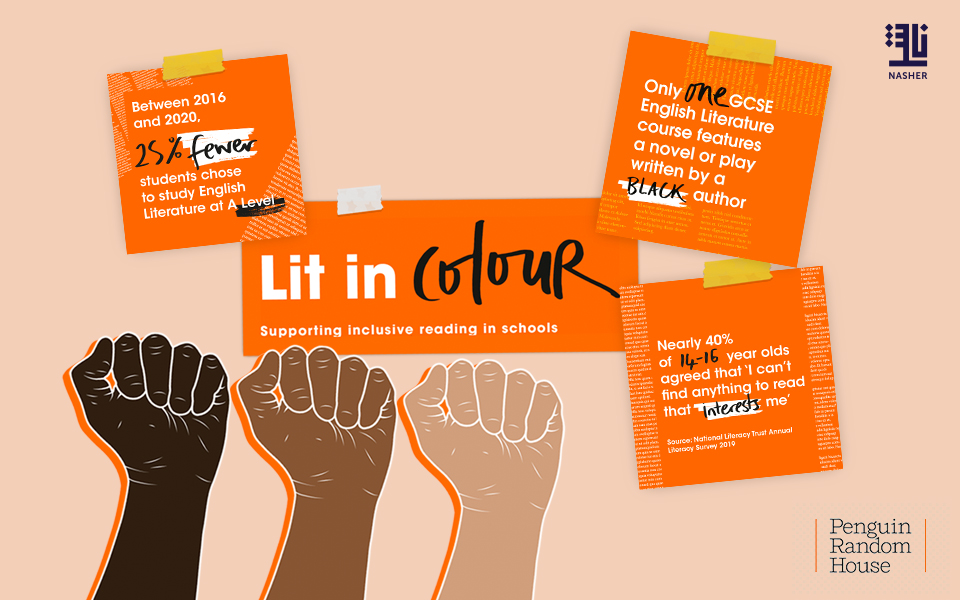Just a week or so after the British black writer Bernardine Evaristo told the Frankfurt Book Fair that “publishing in the UK is almost entirely white, which has long been unacceptable to many of us”, Penguin Random House UK has launched an initiative to address the white bias in the authors that are studied at UK schools.
It has joined forces with the Runnymede Trust, the UK’s leading independent race equality thinktank, in a campaign to make English Literature teaching more inclusive. The publisher has committed to commission landmark research to better understand the scale of the issue and explore possible solutions, with the voices and views of teachers and young people front and centre.
It will also support the campaign over the long-term by providing practical and creative tools to equip and empower teachers and students to make change in the classroom. PRH says: “This will include working together with the incredible authors we publish, as well as donating books, creating free resources and more. We will also seek out alliances with experts and organisations already fighting for education reform. As a publisher, we have a critical part to play in publishing more books by writers of colour for all ages.”
In particular, Lit in Colour will look at those books that are studied for the GCSE and A Level exams that pupils in the UK sit at 16 and 18 respectively. According to the campaign, out of the 65 novels and plays that can be studied, 56 are written by white authors. Of the nine books written by authors of colour, four were introduced just last year and are unlikely to have been widely adopted. Only one GCSE English Literature course features a novel or play written by a black author.
PRH UK Chief Executive Tom Weldon said: “At its best, English Literature offers young people a passport to see and understand the world through others’ eyes, inspire a lifelong love of reading and a fundamental sense of belonging. Access to a diverse and representative range of books, authors and characters is key — in classrooms, school libraries and at home.
“But the reality is that our young people are still studying a mostly white, mostly male English Literature curriculum: one which neither reflects contemporary society nor inspires a generation to read outside of their classes. We are joining forces with The Runnymede Trust to support the many schools and teachers working hard to make change on the ground, and to better understand the depth and breadth of this issue.”
Dr Halima Begum, director of the Runnymede Trust, said: “It is a sad reality that the dearth of ethnic minority authors, dramatists and poets means that our national curriculum fails to offer a true reflection of UK society, our bond to the Commonwealth and our migration story, which underpin the rich tapestry of our country’s diversity.
“By partnering with Penguin on Lit in Colour we hope that the teaching of English literature in our classrooms can fire our children’s collective imagination and embed into our national consciousness the lived experience of millions more of our children and their families, whose stories and voices enrich the canon of English literature and continue to shape our national identity.”
Evaristo has welcomed the initiative. “This is an incredibly important, exciting and essential initiative that aims to redress an education system overwhelmingly delivered through a white filter that marginalises and excludes people of colour.”
She continued: “I am hopeful that the impact of the report will be seismic, and I feel positive that the measures put in place to offer schools literature that better reflects our society will expand and enrich young people’s ideas about our country and the world, as they engage with a rich array of experiences and perspectives, and through this deepen their understanding of our shared humanity.”







